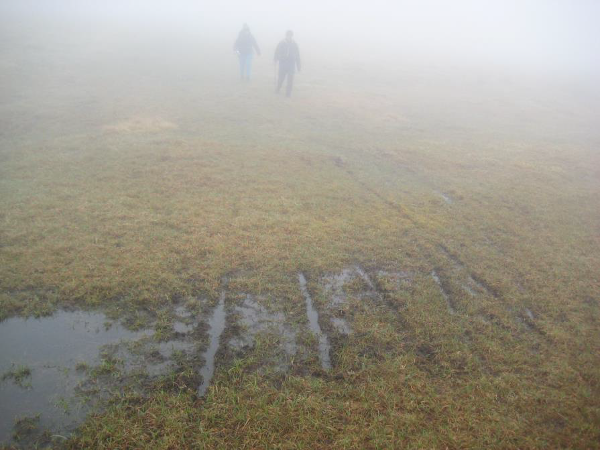
Bike marks on Ben Wyvis © Ken Thomson
A recent academic paper (Kuwaczka, L. F. et al., Ecological impacts of (electrically assisted) mountain biking, Glob. Ecol. & Conserv., 44 (2023)) has reviewed published research in several developed countries in order to outline the ecological impacts of conventional mountain biking (MTBing), and to highlight the potential consequences of increased use of electrically assisted MTBs (eMTBs), especially if the latter lead to the creation of more trails and more off-trail biking. Out of 156 relevant studies found, 35 (18 from the USA, 7 from Australia, and only 1 or 2 from each of a few European countries, including the UK) were analysed as regards impacts on soil, vegetation and animal wildlife.
MTBing can lead to soil compaction, exposure and erosion (with implications for water flow), seed dispersal (e.g. of invasive species), and vegetative damage and changes in areas adjacent to trails, as well as animal responses, e.g. changes in habitat use and patterns (immediate, diurnal (day-time) and seasonal), and reduced reproduction.

Bike marks on Ben Wyvis © Ken Thomson
Evidence for the effects of MTBing on soil and vegetation is consistent, but these naturally depend on geology, species and context. One study found that MTB use on the flat had a higher impact on soil compaction or erosion than hiking, while on steeper slopes, braking or skidding is likely to cause higher amounts of soil damage. eMTBikers — perhaps less skilled than conventional riders? — may intensify this result; on the other hand, eMTBikers may try to avoid wet weather, which worsens the effects.
Contrasting findings made it impossible to evaluate a general effect on wildlife. This may be due to the wide variety of species and their habits (e.g. breeding, feeding, resting), and/or to the difficulty of monitoring animal reactions to MTBing, especially over time. However, more eMTBs seem likely to lead to wider spatial land use, including steeper slopes, thus magnifying effects.
The authors conclude that the exploration of new areas has the strongest effects on ecological systems, through the use of previously unused trails, or the construction of new trails.
Please let the webmaster know if there are problems with viewing these pages or with the links they contain.